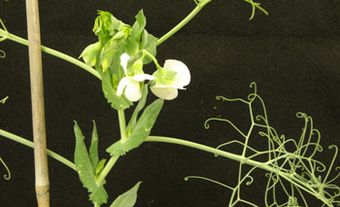
Turnip (Brassica rapa, Rapifera Group), biennial vegetable belonging to the Cruciferae family and grown in all provinces as a root crop. Native to Siberia, the turnip was introduced to England around 1550 and brought to America by the first settlers. The turnip is closely related to rutabaga but has a smaller, round, flat root, green downy leaves and white or yellow flesh. Various cultivars (commercial varieties) of white-fleshed and yellow-fleshed turnips are grown. A temperate-climate vegetable cultivated in spring or fall, the turnip has a growing season of approximately 60 days. The turnip is prone to clubroot and black rot (fungus diseases) and is attacked by such parasites as the plant louse, flea beetle and cabbage fly. Served like spinach, the leaf is an excellent source of calcium, iron and vitamins A, B and C. The root contains calcium, potassium, sodium, and vitamins A and C.

 Share on Facebook
Share on Facebook Share on X
Share on X Share by Email
Share by Email Share on Google Classroom
Share on Google Classroom


